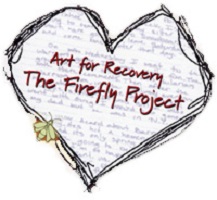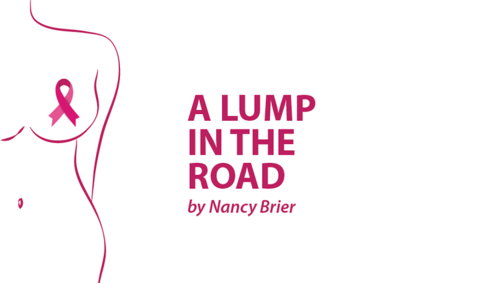I’m waiting for a letter, and it’s going to be here any day now.
Not an email. Not a bill. Not a catalog. A real letter, written just for me by a real person, a person I don’t even know yet.
Firefly is a project of the Art for Recovery Program at the University of California San Francisco, and it connects UCSF medical students and Bay Area teens with patients who have serious illnesses. I learned about it when I was at the hospital with breast cancer, and through it, I was matched with amazing students with whom I corresponded over the course of a school year.
At the program’s end, I got to meet my penpals in a healing ceremony facilitated by UCSF’s Art for Recovery staff. By the time we met in person, I felt like I knew them well, and it was fun to see what my penpals looked like compared to how I had visualized them, sort of like meeting a character in a book.
Now that a new year is underway, a fresh batch of students will participate, and I am so excited to correspond with a few of them.
Cynthia Perlis, the program’s founder, has brought students and patients together for more than 20 years. She is one of those rare individuals whose compassion is matched only by her determination and intelligence, and this combination makes her uniquely effective in her quest to help others.
The idea started when she was working at the hospital with cancer and HIV patients, and, sitting at their bedside, she experienced first-hand their loneliness and isolation.
Those patients shared their life experiences before they became ill, and Cynthia knew that they had something important to teach the world. They inspired her to build a bridge.
That bridge is called the Firefly Project. It gently fills the gap between the rigor and science required to heal illnesses, and the personalities and souls of the patients who endure them. Along with the letters we write, penpals work collaboratively on an art project, mailing the project back and forth until its completion.
One of the things I like best about the Firefly project is learning about people who dedicate their lives to medicine. My penpals are medical students.
Before I was diagnosed with cancer, I had never even been inside a hospital other than the blissful few days I spent having a baby or reluctantly visiting someone else who was ill. For me, that world was a foreign country, a stamp I thought I’d never have a spot for in my passport.
Medical professionals, I thought, have their own language. They are scientists. They don’t think the way I do.
Penpal students become doctors and friends
But the Firefly Project changed my mind.
By exchanging letters, I got to know students who have since become doctors. And these doctors are now my friends. We’ve exchanged recipes, photos of our pets and kids, snatches of poetry, and other bits and pieces of our lives that make us who we are. We have shared personal stories about living and dying, learning from each other. Through our Firefly letters, we’ve punctured holes in the wall that separates our worlds.
The students I’ve met through Firefly are extraordinary. Smart, driven, and creative, they have a lot of choices in life, and they chose to spend it helping others. I continually find myself inspired by them.
I’ve always known that the training to become a doctor is grueling. But Firefly has broadened my understanding of the sacrifice it requires. Reading letters — about schedules the students keep, the responsibilities they take on, the years they dedicate to study — has been eye-opening.
Through this program, I’ve also learned that I have something of value to teach as well. By sharing my story, I’m helping scientific brains connect to the human side of disease. I provide a face and a voice in a place where science and statistics can rule the day.
I used to chase fireflies as a little girl in the humid midwestern summers, but now as an adult, the fireflies come to me.
And they’re just as beautiful as I remember.
Postscript: Cynthia Perlis is the author of two books, “The Firefly Project: Conversations About What It Means to Be Alive” and “Bedside Manners: What to Say And Not to Say When Someone Is Ill,” and of two workbooks: “The Art for Recovery Book of Prompts” and “The Portable Artist.”
About the Firefly Project
Middle school and high school students, along with UCSF Medical/Nursing students, exchange hand-written letters and personal artwork with adult patients who are coping with life-threatening illness. Students learn what it feels like to cope with serious illness, undergo chemotherapy, face the unknown and, most importantly, how not to be afraid of asking serious questions. Patients have the opportunity to give back to their communities as they teach the students about hope and pain, and remember what it was like to be a teenager. Students share their lives, including their own pain of growing up and feelings about their future. Bridges are built and friendships created — even after the school year ends.
Note: Breast Cancer News is strictly a news and information website about the disease. It does not provide medical advice, diagnosis, or treatment. This content is not intended to be a substitute for professional medical advice, diagnosis, or treatment. Always seek the advice of your physician or other qualified health provider with any questions you may have regarding a medical condition. Never disregard professional medical advice or delay in seeking it because of something you have read on this website. The opinions expressed in this column are not those of Breast Cancer News, or its parent company, BioNews Services, and are intended to spark discussion about issues pertaining to breast cancer.


